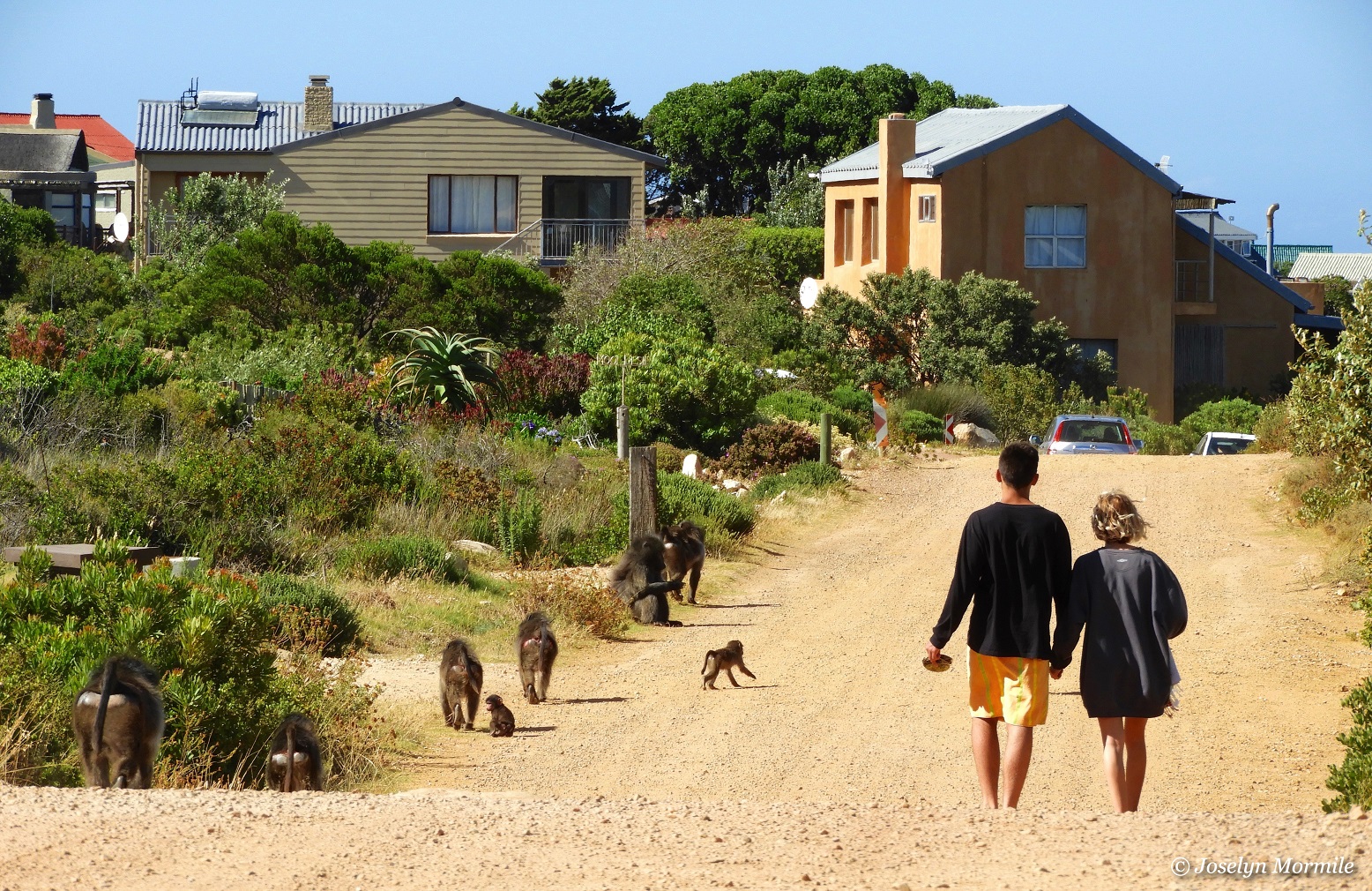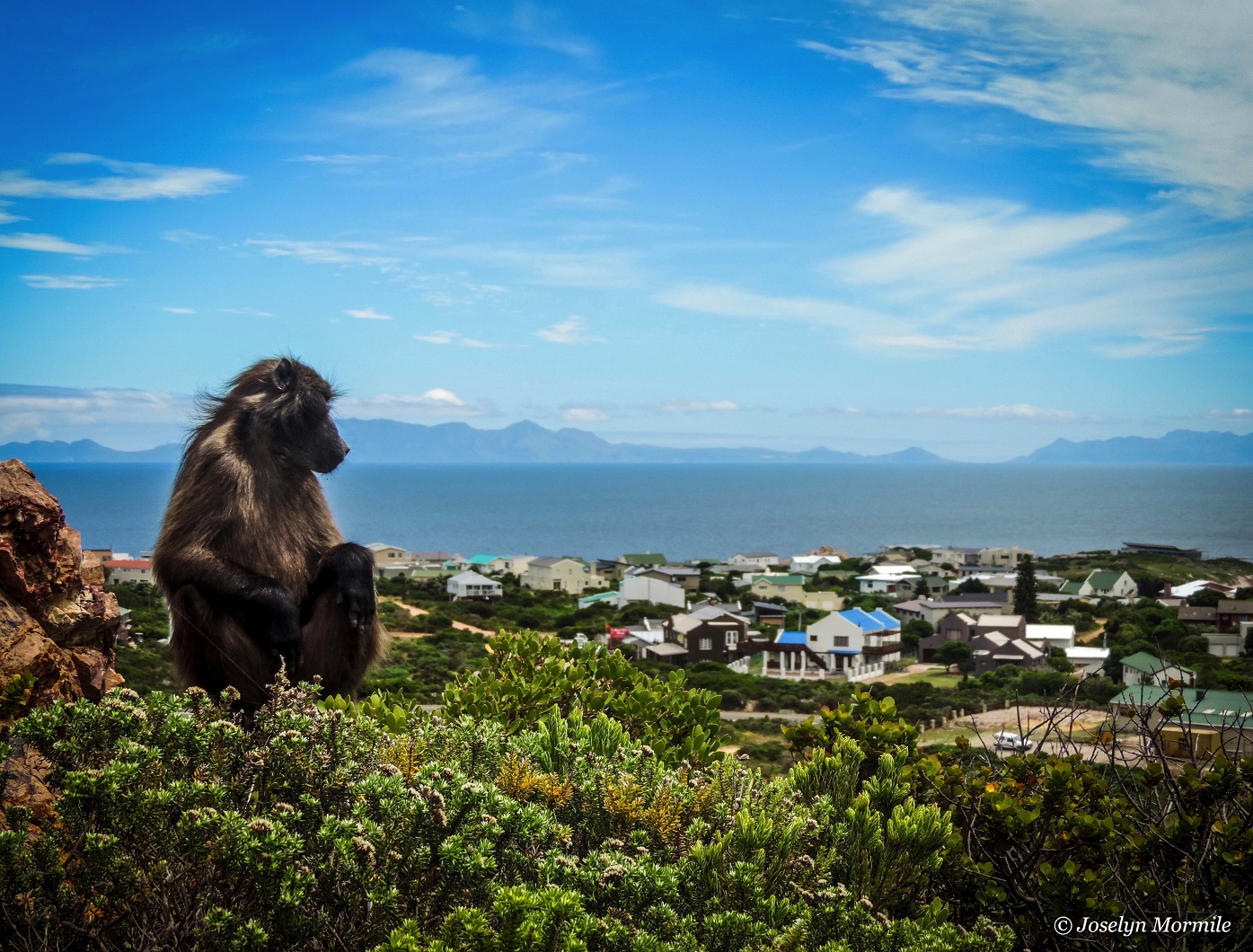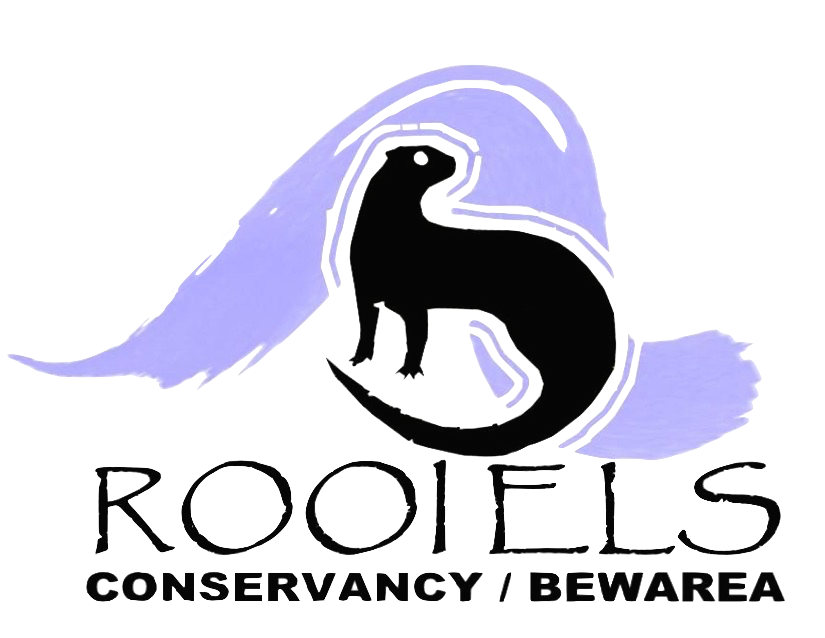|
Jump to: iCWild's work · Key insights · Project team · Collaborators and funders · Outputs |
While residents and wildlife managers across Africa typically seek to exclude baboons from residential areas, the residents of Rooiels, a coastal village and registered urban conservancy near Cape Town, South Africa, have opted to coexist with the local wild baboon troop. This unique situation provides the opportunity to understand the factors that make coexistence possible from both a human and baboon perspective, and can yield insights into how to minimise and mitigate human-baboon conflict in urban communities elsewhere.
iCWild's work

Joselyn Mormile is still currently registered as an iCWild PhD student and is writing up her thesis. In October 2020 she was employed by Nature Conservation Corporation who are currently managing the Peninsula baboon program. For her PhD Joselyn used an interdisciplinary approach to develop her understanding of human-baboon coexistence. She used direct observations and GPS tracking collars to better understand the behaviour and spatial ecology of the local baboon troop. She also used detailed questionnaires and interviews with residents to understand the attitudes and perceptions of residents towards baboons. This research follows on from previous research on the Cape Peninsula where humans and baboons are not encouraged to share space.
Key insights

Responsible human behaviour is the key to human-baboon coexistence.
In Rooiels, because people diligently and effectively store their food waste in baboon-proof bins and baboon-proof their homes, baboons have minimal access to human-based food. Baboon-proof window fixtures are especially effective as they allow people to keep their windows open during summer. Despite these measures, the baboon troop still visits the Rooiels village nearly every day, but – instead of coming into conflict with people over prized human food items – they spend the majority of their time peacefully foraging in the abundant fynbos vegetation on resident properties and road verges.
Targeted and effective education and awareness campaigns drive responsible human behaviour.
An informal education and awareness campaign run by a few Rooiels residents over the past decade has helped new residents learn how to face

the potential challenges of sharing space with baboons. Successful baboon-proofing strategies and the dispelling of myths regarding baboon behaviour are routinely shared by word of mouth, on community social media groups, as well as on the community website. A bylaw in the Overstrand Municipality that requires residents to dispose of rubbish in baboon-proof bins is also in place, and almost certainly contributes to the responsible behaviour. However, it is arguably the culture and social norms of the Rooiels Conservancy that make this community so receptive to the education and awareness campaigns.
Risks remain despite low levels of human-baboon conflict.
Although there are very low levels of human-baboon conflict in Rooiels, many baboons are still killed in collisions with vehicles on the road that bisects the village. This means that even in coexistence contexts, authorities still need to ensure that measures are put in place to ensure animal welfare and human wellbeing.
Project team
|
Joselyn Mormile (iCWild), PhD Candidate and project contact Prof Justin O’Riain (iCWild), Supervisor Prof Nicoli Nattrass (iCWild), Co-supervisor Dr Matthew Lewis (iCWild), Co-Supervisor |
Collaborators and funders
Related outputs
Click here to view iCWild's full output list, and use the filter tool to view outputs related to the Human-baboon co-existence project.

